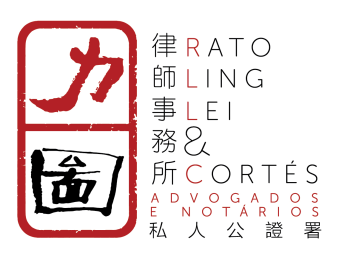Introduction
Through the publication of the 2007 Mutual Evaluation Report on Macao, China(1) by the Asia-Pacific Group on Money Laundering and Offshore Group of Banking Supervisors, the Macau Special Administrative Region (MSAR) was made aware of the absence of asset-freezing mechanisms in its legal system, which were required for compliance with the MSAR's obligations under resolutions adopted by the UN Security Council in the context of fighting terrorism. In March 2016 the MSAR government presented a draft law(2) on a legal regime for the freezing of assets to the Legislative Assembly, which voted in favour of the law.
Preliminary provisions
With the clear objective of establishing a regime to execute decisions to freeze assets under UN Security Council penalty resolutions, adopted in the context of the fight against terrorism and the proliferation of weapons of mass destruction and made applicable to the MSAR by a Chinese decision, the law defines its scope of application as follows:
- natural, collective persons and entities in the MSAR or natural persons onboard a vessel or aircraft registered in the MSAR;
- residents of the MSAR, regardless of their whereabouts;
- assets in the MSAR owned by a natural, collective person or an entity that is subject to an asset-freezing decision; and
- all transactions or operations related to assets, by any means, directly or directly, totally or partially, in or through the MSAR.
General provisions for asset freezing
The chief executive of the MSAR is competent to execute asset-freezing decisions in the MSAR, with technical assistance from the newly established Coordinating Commission for the Regime of Freezing of Assets.
In order for assets to be frozen, the act of identification – an act by an international competent institute or the chief executive which identifies a natural, collective person or entity as the subject of an asset-freezing decision – must be published in the Official Gazette. Following publication, it is prohibited to make an asset that is the property or under the control of the identified person or entity available to that party. This section further provides for specific circumstances where:
- co-ownership is involved;
- access to frozen assets is requested;
- administration of frozen assets is required;
- perishable assets are present;
- the process of verification of identification is invoked; and
- liability for damages is excluded.
Specific and general normative commands of asset freezing
Given that the identification of the person or entity has been provided for by the UN Security Council in the Specific Normative Command of Freezing of Assets,(3) Section II of Chapter II sets out a linear procedure for the notification of such person or entity after the freezing of assets. This section also provides for procedures to identify or remove persons or entities from the list of persons or entities subject to the freezing of assets by UN Security Council resolutions, access to assets and the interaction between the international organisation, the central government and the MSAR.
The General Normative Command of the Freezing of Assets(4) provides only for the criteria to identify the relevant assets by the MSAR. Section III of Chapter II sets out procedures for identification, notification, access to assets, repeal of identification and administrative appeal and particularities regarding elements to be included in the act of identification, the validity period and the confiscation or loss of assets.
Proposed penalty provisions
Notwithstanding applicable criminal penalties, violation of the draft law's prohibitions constitutes an administrative infringement with a fine ranging from Pte10,000 to Pte500,000 ($1,252 to $62,596) for natural persons and Pte100,000 to Pte5 million ($12,520 to $625,955) for collective persons or entities. The Coordinating Commission for the Regime of Freezing of Assets has the competence to commence and investigate penalty proceedings, while the chief executive has the competence to apply fines.
With the recent surge of money laundering connected to terrorism, countries and regions have realised that these problems require a global approach for any solution to be effective. As the number of UN Security Council resolutions made applicable in the MSAR by orders of the Chinese government increases, the MSAR government has recognised the need for a mechanism that adheres to the UN Security Council resolutions regarding the freezing of assets.
This legislative trend should be considered as the MSAR government and the Legislative Assembly take steps to keep up with international regulatory measures, as the MSAR undergoes its transformation into a world-class city.
Following Legislative Assembly approval of the draft law on March 21 2016, the draft has passed to the First Permanent Commission for discussion and a vote. Following this process and homologation by the chief executive, it will be enacted as law.(5)
For further information on this topic please contact Pedro Cortés or Calvin Tinlop Chui at Rato, Ling, Lei & Cortés Advogados by telephone (+853 2856 2322) or email ([email protected] or [email protected]). The Rato, Ling, Lei & Cortés Advogados website can be accessed at www.lektou.com.
Endnotes
(1) Asia-Pacific Group on Money Laundering/Offshore Group of Banking Supervisors Mutual Evaluation Report on Macao, China against the Financial Action Task Force 40 Recommendations (2003) and 9 Special Recommendations, as adopted on July 24 2007 by the Asia-Pacific Group Plenary, available at www.apgml.org/includes/handlers/get-document.ashx?d=56599928-655f-41e8-9570-0a7ee0872b0e.
(2) Draft Law on the Regime of Execution of Freezing of Assets, initial version, available at www.al.gov.mo/proposta/congelamento/proposta.pdf (in Portuguese) and www.al.gov.mo/proposta/congelamento/proposta_cn.pdf (in Chinese).
(5) Rules of Procedure of the Legislative Assembly of the MSAR (approved by Resolution 1/1999 and altered by Resolutions 1/2004, 2/2009, and 1/2015), available at http://images.io.gov.mo/bo/i/2009/25/resol-2-2009.pdf in conjunction with http://bo.io.gov.mo/bo/i/2015/21/resolu01.asp.
This article was first published by the International Law Office, a premium online legal update service for major companies and law firms worldwide. Register for a free subscription.




